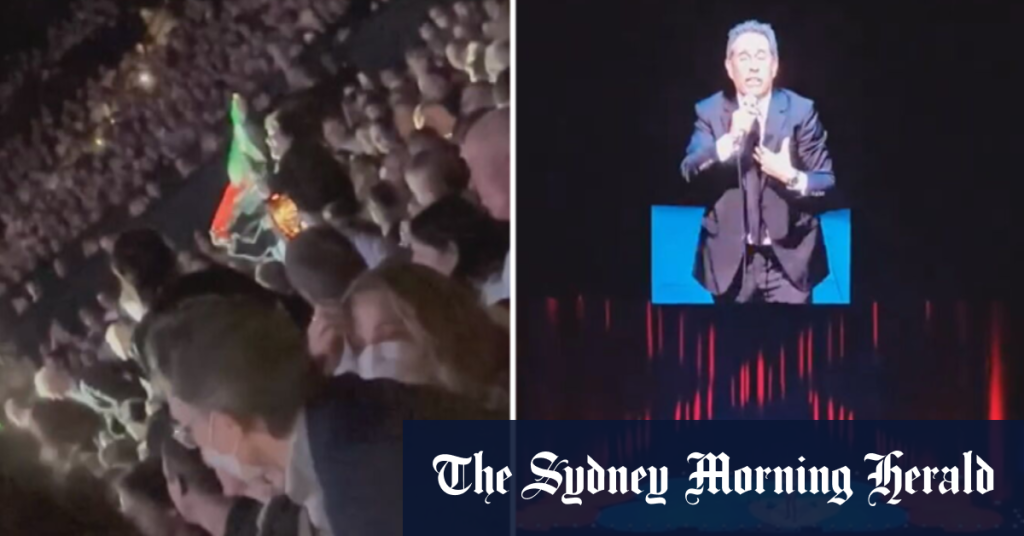Jerry Seinfeld, the famous comedian, was once again interrupted by anti-war protesters during one of his shows in Sydney. The protesters heckled Seinfeld and held up banners with messages opposing military intervention in various conflicts. This is not the first time Seinfeld has been the target of such demonstrations, as similar incidents have occurred at his shows in other cities around the world. Despite the interruptions, Seinfeld remained composed and managed to continue his performance, much to the delight of the majority of the audience members.
The protesters’ actions have sparked debate among fans and critics alike, with some questioning the appropriateness of targeting a comedian like Seinfeld for their political message. While freedom of speech is a fundamental right that should be protected, some argue that disrupting a comedy show is an inappropriate venue for expressing political views. On the other hand, supporters of the protesters argue that any platform, including a comedy show, is fair game for raising awareness about important issues such as war and peace.
Seinfeld’s response to the interruptions has been met with a mix of praise and criticism. Some have commended him for handling the situation with grace and professionalism, while others have questioned his choice to continue the show as if nothing had happened. It is important to note that Seinfeld is known for his commitment to his craft and his dedication to delivering a top-notch performance, regardless of any external disturbances. This incident may serve as a reflection of Seinfeld’s unwavering focus on entertaining his audience, even in the face of adversity.
The incident has reignited discussions about the role of celebrities in political discourse and the boundaries of free speech. While some believe that celebrities have a responsibility to use their platform to speak out on important issues, others argue that their primary role is to entertain and that bringing politics into the equation can detract from the experience for the audience. Seinfeld, known for his apolitical comedy and focus on observational humor, may not have expected to become a target for political activists, but his handling of the situation has further cemented his reputation as a consummate professional.
Overall, the incident at Seinfeld’s Sydney show serves as a reminder of the complex relationship between entertainment and activism. While some may view his performance as a welcome escape from the realities of the world, others see it as an opportunity to engage with important social and political issues. The clash between these perspectives highlights the diverse ways in which individuals engage with and interpret entertainment, and underscores the ongoing debate about the role of celebrities in shaping public discourse. Regardless of where one falls on this spectrum, it is clear that Jerry Seinfeld’s ability to navigatesuch situations with grace and humor is a testament to his skill as a performer and his enduring appeal as a comedic icon.













